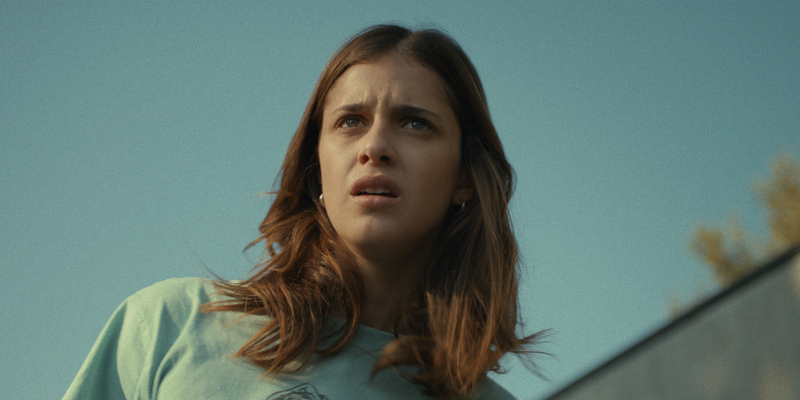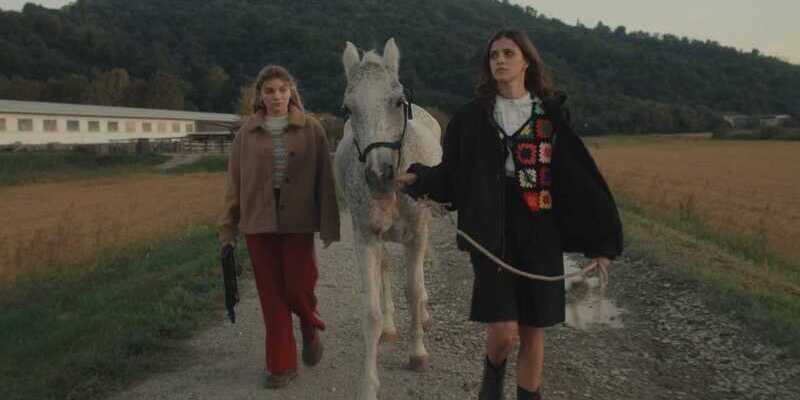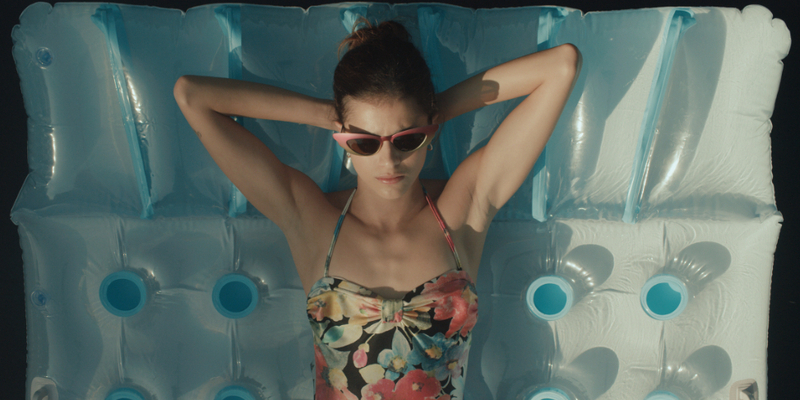
Review by
Eric Hillis
Directed by: Carolina Cavalli
Starring: Benedetta Porcaroli, Galatéa Bellugi, Michele Bravi, Giovanna Mezzogiorno, Monica
Nappo, Margherita Maccapani Missoni

European cinema has given us some fascinating female fuckups over the
past year or so. Think the trainwreck at best, sociopathic at worst
protagonists of
The Worst Person in the World,
Sick of Myself
and
Return to Seoul. None of them are what you might consider aspirational, but they're
all relatable to some degree in their struggles to negotiate their
twenties, perhaps the most uncertain time in our lives, and they've made
for a refreshing contrast to the one-dimensional female "role models" of
recent American cinema. The latest addition to this growing group is the
title character of Italian writer/director Carolina Cavalli's
feature debut Amanda.

Played in rousing fashion by Benedetta Porcaroli (new to this
writer but apparently something of an online sensation for her role in
the Netflix series Baby), Amanda is a 25-year-old who returns to her wealthy family in Italy
after spending five years studying in Paris. Her family members aren't
exactly happy to see her return. She has an estranged relationship with
her older sister Marina (Margherita Maccapani Missoni), stemming
from a childhood incident in which Marina sat by as Amanda almost
drowned in the family pool. Her mother (Monica Nappo) tries her
best to reintegrate Amanda into the local community, but Amanda prefers
to hang out with her family's housekeeper, who is none too happy with
such an arrangement.
Desperate to make friends, Amanda hangs out at a local rave and sets
her sights on a strange young man (Michele Bravi) whom she
accuses of dealing drugs before deciding he's her boyfriend. She becomes
obsessed with freeing a horse she believes is being mistreated at a
local farm. She buys copious amounts of energy drinks from a local
supermarket to rack up enough points to acquire an electric fan which
she plans to sell to a local electrical store rather than earn money
working in her family's pharmacy.

Amanda's listless days become filled with new purpose when she
reconnects with an old friend, Rebecca (Galatéa Bellugi), who has
spent the past few years refusing to leave her bedroom. Rebecca becomes
the latest obsession for Amanda, who grows in her determination to make
this equally offbeat young woman her new friend.
With its quirky characters and a narrative made up largely of
vignettes, Amanda will likely be compared to the many
American indies that would take up the schedule of Sundance around the
turn of the century, and the plot device of an oddball protagonist
returning to their hometown is one that persists in that particular
sphere today. But Amanda's roots go further back to the likes of The Graduate and
Harold & Maude (you could easily imagine Cat Stevens
songs playing over footage of Amanda striding around town), and it has
an artistic precision lacking in most of its American indie cousins.
Arguably not since Wes Anderson's Rushmore has a movie
channeled this sort of vibe in such a visually refreshing manner.
Cinematographer Lorenzo Levrini captures an environment that is
at once scenic and stifling; Amanda lives in the sort of town you'd love
to visit but would probably drive you mad if you had to live there.
There's something very contemporary about the idea of an over-educated
young woman stuck living with her family, and no doubt many younger
viewers will sympathise with Amanda's plight, even if her problems are
decidedly of a first world nature.

It's credit to Cavalli's writing and Porcaroli's performance that the
crazier Amanda behaves, the more we warm to her. She's narcissistic from
the point of view of believing she's more intelligent than everyone
around her, but the thing is, she's probably right. Unfortunately for
Amanda, we live in an age where intellect is no guarantee of success,
and if like Amanda, you refuse to move through life in robotic fashion,
you're not going to get too far. Porcaroli plays the character with the
entitlement and bewilderment of a toddler that can't understand why they
can't have ice cream for every meal. When she leaves the house with a
bowl of rice, Amanda is told she can't just leave the house with a bowl
of rice. But why can't you have ice cream for every meal or eat a bowl
of rice as you wander the streets? Who makes up such arbitrary rules?
Amanda might be her own worst enemy, but at least she's putting up a
fight. Practically everyone she encounters ends up calling her a pain in
the ass, but it's largely because she's prodding their contentment. To
be honest, we could probably all use an Amanda from time to time to wake
us from our societal stupor. Is it really so bad to go through life
asking "Why not?"


